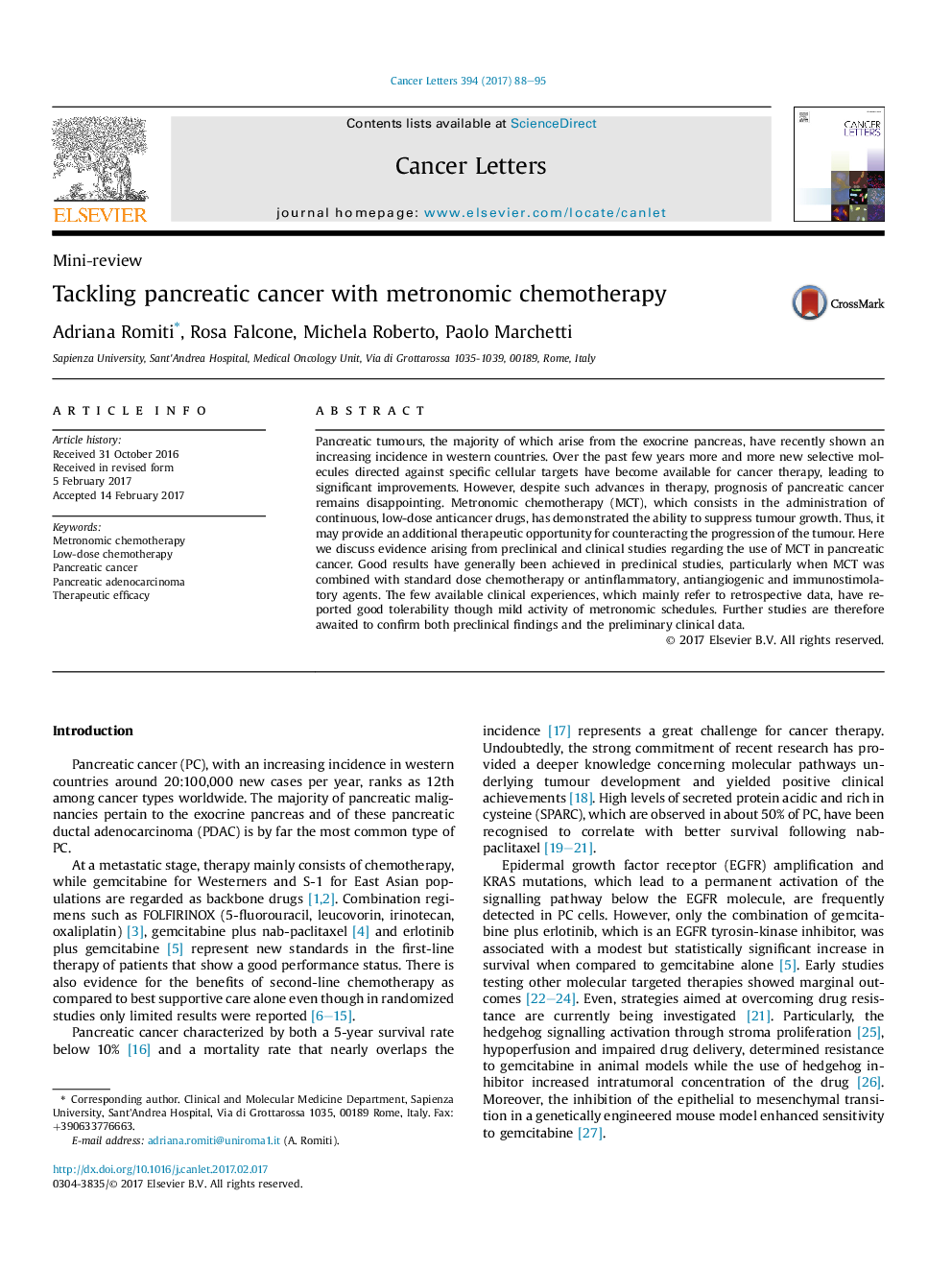| Article ID | Journal | Published Year | Pages | File Type |
|---|---|---|---|---|
| 5525641 | Cancer Letters | 2017 | 8 Pages |
â¢The tumour microenvironment has been recognized as an important factor in supporting tumour growth and promoting metastases.â¢Metronomic chemotherapy has the potentiality of targeting both tumour cells and the tumour microenvironment.â¢It has been shown to significantly inhibit the growth of pancreatic tumours in mice and improve survival.â¢Clinical studies are needed to prove the efficacy of metronomic chemotherapy in patients with pancreatic cancer.
Pancreatic tumours, the majority of which arise from the exocrine pancreas, have recently shown an increasing incidence in western countries. Over the past few years more and more new selective molecules directed against specific cellular targets have become available for cancer therapy, leading to significant improvements. However, despite such advances in therapy, prognosis of pancreatic cancer remains disappointing. Metronomic chemotherapy (MCT), which consists in the administration of continuous, low-dose anticancer drugs, has demonstrated the ability to suppress tumour growth. Thus, it may provide an additional therapeutic opportunity for counteracting the progression of the tumour. Here we discuss evidence arising from preclinical and clinical studies regarding the use of MCT in pancreatic cancer. Good results have generally been achieved in preclinical studies, particularly when MCT was combined with standard dose chemotherapy or antinflammatory, antiangiogenic and immunostimolatory agents. The few available clinical experiences, which mainly refer to retrospective data, have reported good tolerability though mild activity of metronomic schedules. Further studies are therefore awaited to confirm both preclinical findings and the preliminary clinical data.
